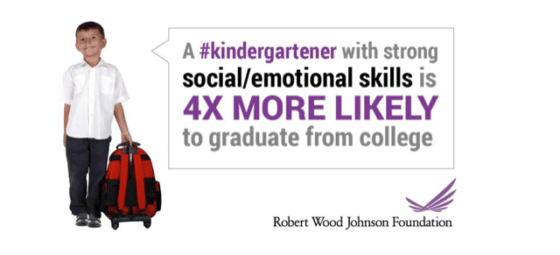We all want our young children to get along with other kids and adults, to follow directions, and to behave appropriately, especially in public! We know instinctively having these qualities and skills will make life smoother for them, at home, at school, with their friends.
But did you know these qualities and skills are precisely those that employers are looking for? In the business world, they are often called “soft skills,” but they may be even more important for success than the so-called “hard skills.”
Bruce Lamoureux, Senior VP/CEO, Providence Health & Services Alaska, says, “After decades in this [medical] field, I know these qualities can’t be easily ‘taught’ on the job. They’re developed and strengthened in the very earliest years of a child’s life.”
What are these skills? Ready Nation provides examples:

- Manage emotions and impulses
- Solve problems
- Take initiative
- Be flexible
- Communicate with and work well in teams
- Persevere and be resilient
- Demonstrate empathy
A foundation for helping your child develop social-emotional skills that are so critical for healthy development is a strong attachment between you and your child. As this handout from Parenting Counts says, “If secure attachment exists, your child will feel safe and confident in their interactions with others, even when bad things happen or big feelings seem overwhelming.”
Here are a few ideas from Social and Emotional Development activities on our website.
Children develop trust when their needs are met on a consistent basis. Respond to a baby’s crying as soon as possible the first few months. Pick her up and hold her in a well-supported position so she’ll feel secure.
Daily rituals provide a time for connecting with your child. Rituals help shape, express, and maintain relationships. As you put older babies and children to bed, say,” I am going to say goodnight to your ears, your hair, your forehead, your eyebrows.” Continue down your child’s body. Each time you say goodnight to a body part, gently massage that part, helping your child relax.
Encourage your child to talk with you about feeling angry, or sad, or happy, and help him name his feelings. You might read books about different emotions with your child and have him tell you some of the ways these emotions can be expressed in appropriate and healthy ways.
We are our children’s first and most influential teacher. Paying attention to their social and emotional development takes time and energy – both things parents of young children often have little of. But the payoff can be tremendous. Not only will your relationship with your child likely be enhanced, but kids who share or are helpful in kindergarten are 46% more likely to have a full-time job at the age of 25!

